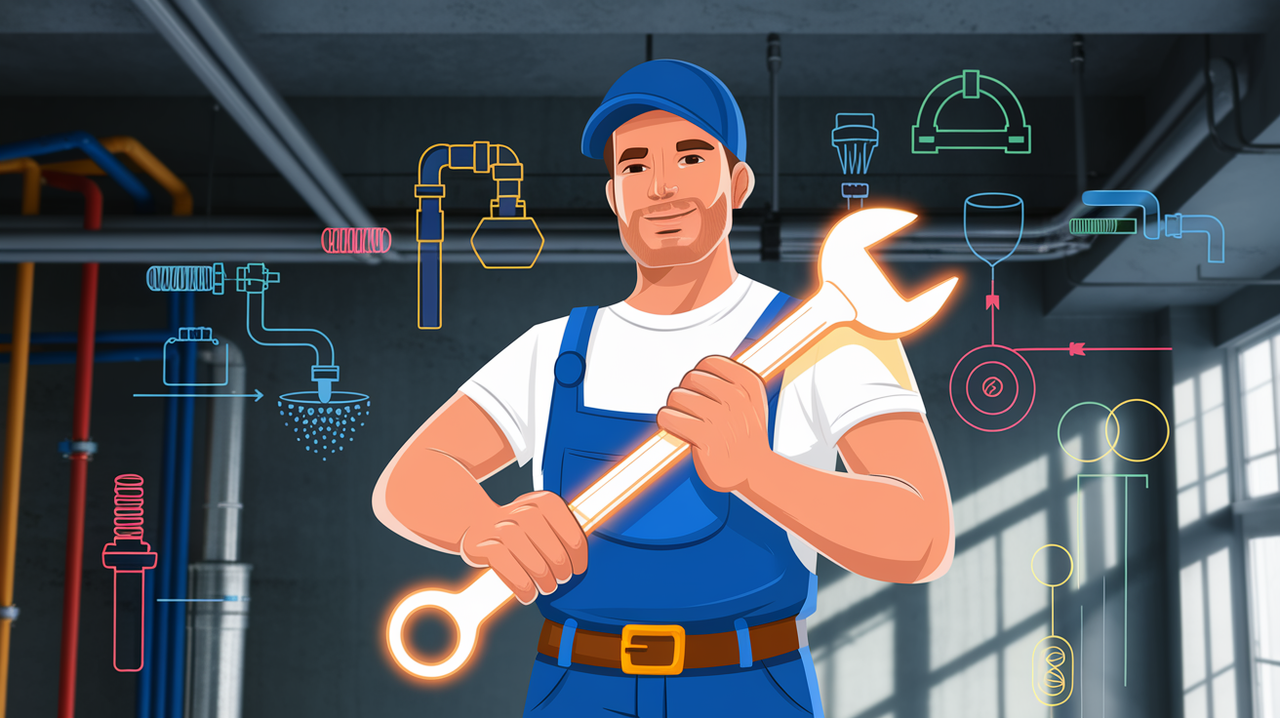Introduction
Hard water can be a real nuisance in your home, infiltrating plumbing systems and leaving behind unsightly buildup that feels almost impossible to tackle. But worry not! In this extensive guide, we’ll unravel the mystery of hard water buildup and arm you with effective methods to eliminate it once and for all. From understanding what causes hard water to DIY repairs and maintenance tips, we’ve got you covered. So grab your favorite cleaning supplies, and let’s dive into the world of plumbing solutions!
What is Hard Water?
Understanding Hard Water
http://river-vale-flooded-basement-repair-in-nj-c-6.theburnward.com/identifying-the-root-causes-of-clogged-drains-and-how-to-fix-themHard water is water that contains high levels of dissolved minerals, primarily calcium and magnesium. While these minerals are harmless, their accumulation can lead to significant headaches for homeowners.
How Does Hard Water Affect Plumbing?
Over time, hard water can lead to several issues within your plumbing system:
- Scale Buildup: This occurs when minerals precipitate out of the water and cling to pipes and fixtures. Reduced Water Flow: The buildup can constrict pipes, leading to decreased water pressure. Appliance Damage: Dishwashers and washing machines can suffer from decreased efficiency due to mineral deposits.
Signs of Hard Water Damage in Plumbing
Identifying Common Symptoms
You might be wondering how to tell if you’re dealing with hard water. Here are some common signs:
White Stains on Fixtures: Look for chalky residue on faucets or showerheads. Dry Skin and Hair: If your skin feels dry after showers, hard water might be the culprit. Frequent Clogged Drains: Mineral buildup can lead to obstructions in pipes.What Are the Most Common Plumbing Problems?
Hard water isn’t just a cosmetic issue; it’s one of many common plumbing problems that affect households:
- Clogged drains Leaky faucets Low water pressure Running toilets
Causes of Weak Water Pressure
Understanding Contributing Factors
Weak water pressure can stem from various sources, including:
- Clogged pipes due to mineral deposits Faulty fixtures Issues with municipal supply
Determining the cause requires a careful examination of your plumbing setup.
How to Remove Hard Water Buildup: Effective Methods Explained
When it comes to tackling hard water buildup, there are several methods available that span both DIY approaches and professional solutions. Let’s explore these options in detail.
DIY Cleaning Solutions for Hard Water Buildup
Vinegar Solution:- Mix equal parts vinegar and water. Apply the solution using a spray bottle on affected areas. Let it sit for 10-15 minutes before scrubbing with a sponge.
- Combine baking soda with a little bit of water to form a paste. Apply it directly onto stubborn stains and let it sit for 30 minutes before rinsing.
- Look for limescale removers specifically designed for hard water. Always follow manufacturer instructions for best results.
Professional Solutions
If DIY methods don’t yield satisfactory results, consider hiring a plumber who specializes in hard water issues. They may recommend:
- Descaling services Installation of a whole-house water softener
Best Tools for Plumbing Repair
Whether you're fixing clogged drains or dealing with leaks caused by hard water buildup, having the right tools is essential:
| Tool | Purpose | |---------------------|---------------------------------------------| | Pipe Wrench | Essential for loosening tight connections | | Plumber's Snake | Great tool for unclogging drains | | Basin Wrench | Useful for tightening faucet fittings | | Tongue-and-groove Pliers | Ideal for gripping irregular shapes |
Pipe Maintenance Tips
Maintaining Your Pipes Effectively
To prevent future buildup and maintain optimum flow through your plumbing system, consider these tips:
Regularly clean fixtures using vinegar-based solutions. Install aerators on faucets to reduce mineral accumulation. Perform routine inspections on pipes for early signs of trouble.Preventing Plumbing Leaks
How Can You Prevent Leaks?
Here are some proactive measures you can take:
Insulate exposed pipes during winter months. Regularly check pipe joints and fittings for wear. Implement routine maintenance checks every six months.Common Plumbing Problems Associated with Hard Water
Hard water creates an array of plumbing issues that require attention:
Scale buildup in showerheads leading to reduced flow Increased frequency of appliance malfunctions Greater wear on pipes leading to premature failuresDiagnosing Plumbing Problems at Home
To troubleshoot plumbing issues effectively:
Observe changes in flow rates or pressure. Listen for unusual sounds like gurgling or hissing from pipes. Check household appliances like dishwashers or laundry machines regularly.What Qualifies as a Plumbing Emergency?
Recognizing a plumbing emergency is crucial so you know when it's time to call in the professionals:

FAQ Section
1. What is the best way to remove hard water stains from faucets?
The best method involves soaking the faucet with vinegar or using a commercial limescale cleaner specifically designed for such stains.
2. How do I know if I need a water softener?
If you frequently experience scale buildup or see white residues around taps and appliances, it may be time to consider installing a softener.
3. What dissolves limescale?
Acetic acid found in vinegar is highly effective at dissolving limescale; however, commercial descalers also work well.
4. How do I improve my faucet's water flow?
Check your faucet aerator first; cleaning or replacing it often restores lost flow due to mineral deposits.
5. What household items can cause major pipe blockages?
Common culprits include grease, hair, soap scum, food particles, and even certain toilet paper types that don’t dissolve well.
6. What are examples of common plumbing problems?
Examples include leaky faucets, running toilets, clogged drains, low pressure issues, and burst pipes during winter months.
Conclusion
In conclusion, while hard water can pose significant challenges within your home’s plumbing system—leading to unsightly buildup and potential damage—there are numerous strategies available at your disposal! By employing effective cleaning methods like vinegar solutions or investing in professional services when necessary, you will keep your plumbing system functioning smoothly while also maintaining an aesthetically pleasing environment in your home!
Remember: Regular maintenance paired with quick action at the first sign of trouble will go a long way toward prolonging the life of your plumbing system! So why wait? Start implementing these tips today!